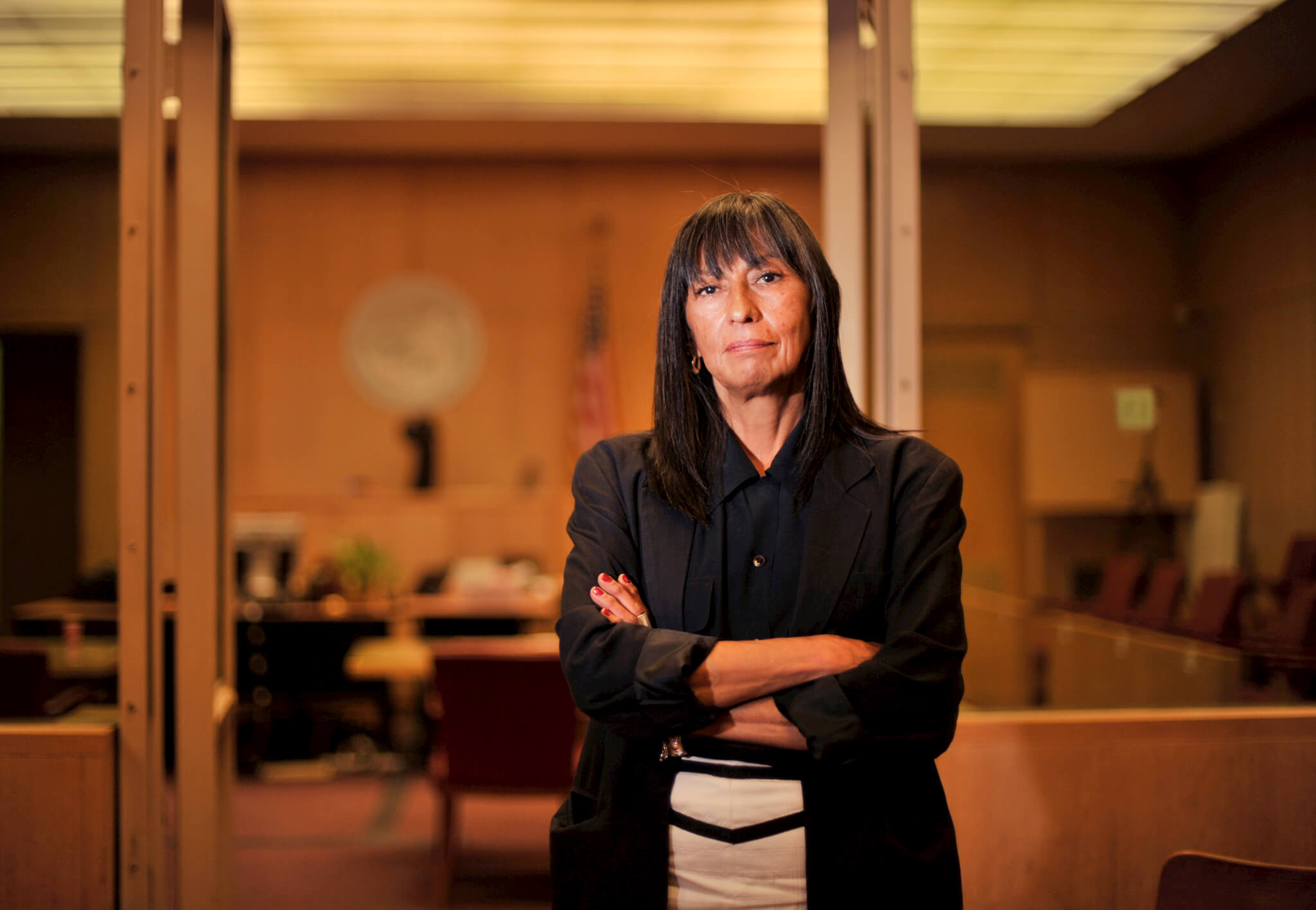“She was a larger than life person,” said Mark Iverson, reflecting on Marla Zamora’s influence as a lawyer in the San Francisco Public Defender’s Office. Iverson, a senior trial attorney at the PD, first met Zamora 25 years ago. Their professional relationship deepened 16 years ago, when the pair worked in the juvenile unit together; Iverson became increasingly impressed by Zamora’s dedication to her clients.
Zamora, 65, was found by police bleeding from stab wounds in the backyard of her Arkansas Street home the morning of Friday, May 6. She was pronounced dead at the scene. Her grandnephew, Angelo Zamora, 20, was arrested by the Sheriff’s Department as the sole suspect in her death. He was immediately taken to San Francisco General Hospital for psychiatric treatment and was arraigned there on May 11.
Carmen Aguirre, a longtime friend of Zamora’s and manager of the PD’s misdemeanor unit, met Angelo several years ago but hadn’t seen him recently. According to ABC 7, friends of Zamora said she’d been attempting to help her grandnephew at the time she was murdered. Aguirre emphasized that Zamora’s family wants the current focus to be on celebrating Marla’s life.
Originally from Oakland, Zamora graduated from St. Elizabeth High School in 1968. She completed her undergraduate education at Laney Junior College and California State University, Chico, where she graduated with a sociology degree in 1972. She obtained a juris doc-toral degree from the University of California, Hastings College of the Law in 1976.
Zamora served as an attorney at the Public Defender’s Office for 29 years. She started a private practice in 2008. Her work concentrated on defending adults charged with serious felonies; she also spent 11 years defending juveniles. She had a high success rate defending clients in about 75 jury trials over the course of her career.
Zamora had attempted to retire, but was encouraged by former colleagues to defend Edwin Ramos at his trial for triple-murder charges in 2012. “Her first retirement didn’t take,” recalled Iverson. “People would call and ask her to represent their son; she just couldn’t resist. It’s a hard job and she put everything into it. The second time she retired I would think about her every week and would really miss seeing her. There was no one like her.”
Iverson acknowledged that at the beginning of her career the Public Defender’s Office was white male dominated. He remembers Zamora being criticized early on before demonstrating her skill, winning several cases in a row. Despite the adversity she faced, Iverson said Zamora never complained or called attention to herself as a Latina breaking-down social barriers. In addition to her frequent late nights at the office meeting with clients’ families, and her fearless advocacy in the courtroom, Iverson reflected on her knack for making everyone around her feel good about themselves, including her colleagues.
One colleague, Paul Demeester, got to know Zamora well, as he lived in her Arkansas Street home as a roommate during two periods in the 1990s, when he was in-between living arrangements. He described her as a pioneer public defender whose personal background may have been the stimulus for her perseverance as a defense attorney.
“Her parents were from Costa Rica. When she was growing up relations between police and communities of color were very bad in Oakland, so she had gotten a sense of law and order issues. I also think someone in her family was shot and killed by police,” Demeester added.
Demeester noted Zamora’s high degree of vitality throughout her career. He witnessed her immediately energizing clients when she entered into a holding tank. Many were juveniles, with low expectations of a public defense lawyer, who came to accept her advice and motivation to help her fight their cases. This past December, Demeester encountered Zamora at a San Mateo courthouse pursuing cases through her private practice.
Working as a public defender consumed most of Zamora’s life, leaving little time for outside commitments. However, colleagues recall her devotion to family members, including her daughter, Andréa Zamora, 27, who lives in Los Angeles.
According to Aguirre, Zamora, wasn’t a dog lover originally, but a few years ago, when she encountered a rescue animal in need of a home, she didn’t hesitant to adopt it. Since that time she acquired two more dogs, and would enjoy walking them around Potrero Hill.
“She always lit up a room when she walked in,” Aguirre said. “She would openly tell everyone in a room that she loved them. She is truly a free spirit.”
A memorial service was held last month at the Chapel of the Chimes in Oakland. Iverson described the event as somber, but also filled with the joy of memories retold by those who knew Zamora. Andréa, though grief-stricken, gave a speech at the end.
“Marla could empathize with you no matter who you are,” Iverson commented. “A lot of her clients were victims themselves, of child abuse and other things. She could empathize with everyone.”
At the Public Defender’s Office ninetieth anniversary party three years ago, Demeester remembered Zamora dancing the night away. “The best thing would be if all of us in criminal defense adopted a bit of Marla by never giving up and enthusing the clients to never give up hope,” Demeester expressed. “Too many PD’s burn out. She never stopped giving her all. We can all learn from that; to moralize the client instead of demoralize. That was her strength.”
Support to help with funeral expenses can be donated through: generosi-ty.com/memorial-fundraising/marla-zamora-memorial-fund.


